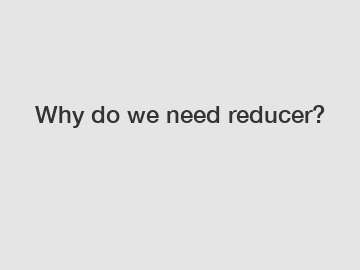Why do we need reducer?
When it comes to managing state in a complex application, having a reliable and efficient system in place is crucial. This is where reducers come into play. Reducers are a fundamental concept in state management in software development, particularly in applications built with frameworks like React and Redux. But why do we need reducers, and what role do they play in our applications?
To understand the purpose of reducers, we first need to grasp the concept of state in an application. State is data that is stored and managed within an application, and it can be anything from user input, responses from an API, or the current UI view. Managing this state efficiently is essential for ensuring that our application behaves as expected and remains in a consistent state.
Reducers are functions that take in the current state and an action as input and return a new state. They are responsible for handling the logic of how our application's state should change in response to different actions. By encapsulating this logic in reducers, we can ensure that our application's state management is predictable and easy to reason about.

One of the key benefits of using reducers is that they promote a unidirectional data flow in our application. This means that changes to our state occur in a predictable and controlled manner, making it easier to debug and maintain our code. By following a unidirectional data flow, we can trace the flow of data through our application, making it easier to understand how changes in state are affecting our UI.
Reducers also play a crucial role in enabling time-travel debugging and state persistence in our applications. Time-travel debugging allows developers to rewind and replay actions in our application, making it easier to track down bugs and understand how our state has evolved over time. By using reducers to manage our application's state, we can easily integrate tools like Redux DevTools to enable time-travel debugging and gain insights into how our application's state changes over time.
In addition to time-travel debugging, reducers also enable state persistence in our applications. By storing our application's state in a single object managed by reducers, we can easily persist and retrieve this state from local storage or a remote server. This allows our application to maintain its state across page reloads or app restarts, providing a seamless user experience.
Another key benefit of using reducers is that they promote composability and reusability in our codebase. By breaking down our state management logic into smaller, composable reducers, we can easily reuse this logic across different parts of our application. This not only reduces code duplication and improves code maintainability but also makes it easier to add new features or modify existing ones without introducing bugs.
Moreover, using reducers in our application enables us to enforce a single source of truth for our state. By centralizing our application's state management in reducers, we can avoid inconsistencies and ensure that our UI always reflects the most up-to-date state. This makes our application more predictable and easier to maintain, as we can rely on a single source of truth for our state.
Overall, reducers play a vital role in state management in modern web applications. By encapsulating the logic of how our state should change in response to different actions, reducers enable a unidirectional data flow, time-travel debugging, state persistence, composability, and reusability in our codebase. By using reducers in our applications, we can ensure that our state management is predictable, efficient, and easy to maintain, ultimately providing a better user experience for our customers.
Are you interested in learning more about pipe fitting and welding, elbow joint pipe fittings, reducer in pipe fitting? Contact us today to secure an expert consultation!
- Previous: None
- Next: Comparing Kelly Valves and Casing Spools: Pros and Cons

